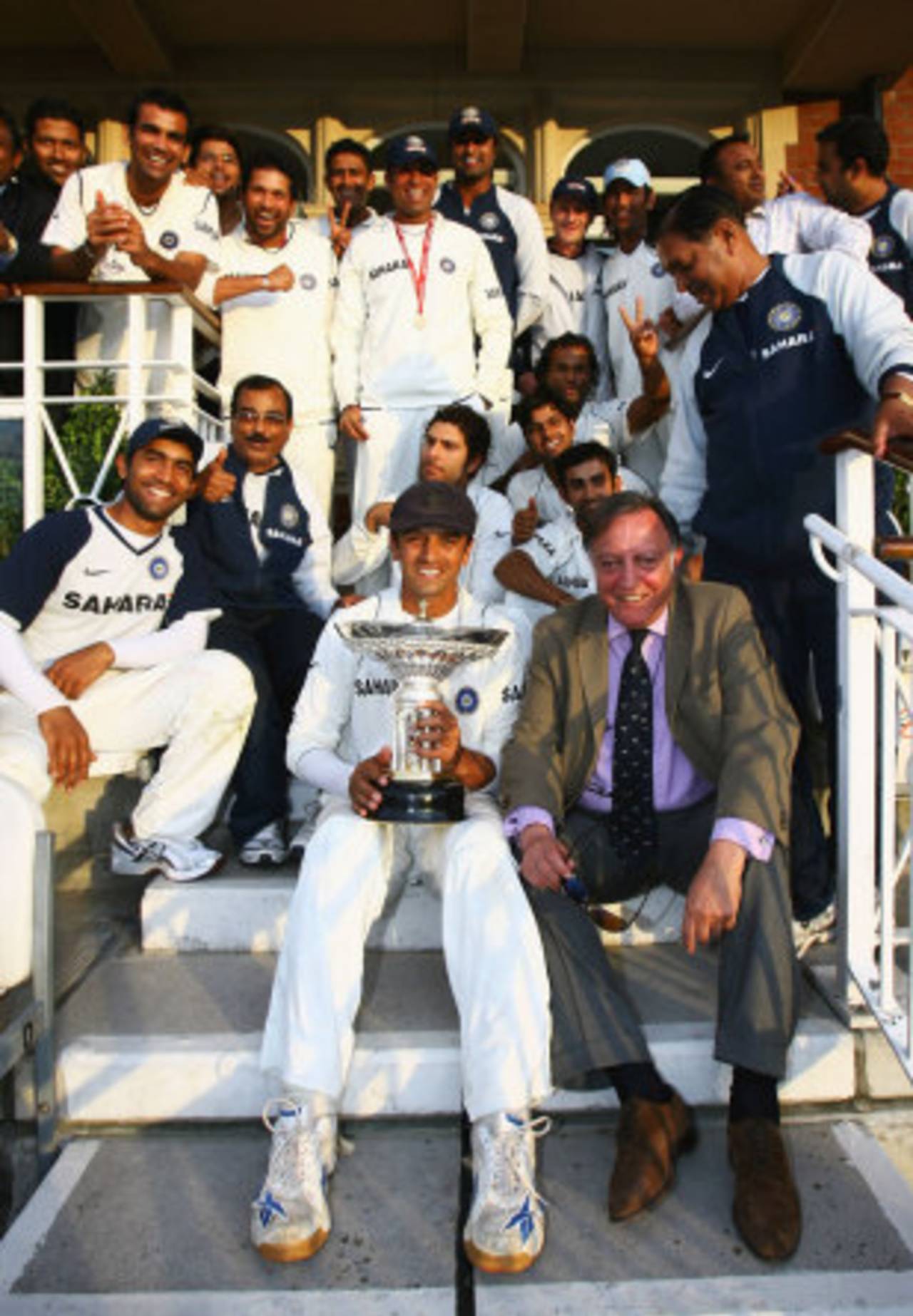Spending an hour with
Tiger Pataudi was often a matter of trying to get a reaction from granite; he could put you off not by what he said but by what he didn't. And spending an hour with Tiger Pataudi could also be a pain in the gut because he could make you laugh until it hurt.
And that is what Pataudi was: aloof yet witty, plain but direct, regal yet casual. He was so many opposites that eventually you stopped trying to classify him.
He was the man you could weave legends around: being hit on the jaw by Andy Roberts, then hitting Vanburn Holder for a straight six, then hitting four fours in succession in front of 90,000, hitting 85 at the MCG, which Ray Robinson described as one of the gutsiest innings ever at that ground, becoming a legend in the covers - and to think that he did all this with only one eye. Sunil Gavaskar described it well: if you want to appreciate the genius of Pataudi, spend a day with an eye closed and then try to light a candle.
He was the absentee editor of the magazine for which I worked, Sportsworld. He lived in Delhi; we slaved in Calcutta. He had discovered the magic of decentralisation and empowerment before liberalisation. The magazine, structured by twenty-something-year-olds, was one in the editing of which Pataudi scarcely took an active interest. His name would decorate the tombstone. And then suddenly one day the Sportsworld peon would come in carrying a scroll from the telex room headlined with the words "editorial by mak pataudi". Typewriter keys would freeze mid-air as people pounced to read the mind of a man who usually dared to differ.
Even though he never edited the magazine, he probably read every word that went into it. In 1987, Pataudi, Gavaskar, Mohinder Amarnath and I went on a trip to Tihar jail at the behest of Kenneth Larkins (jailed on charges of espionage), who was arranging cricket matches to enhance a sense of reform. Pictures were clicked. Three days later Pataudi nixed the scoop on the grounds that this was akin to glorifying someone who had sold the country. Two years later, convinced that Pataudi was not looking, a picture of the visit was used. The following week a telex message arrived, addressed to me: "I thought we had an agreement."
He was a man who trusted his instincts; like on the last morning of the Eden Gardens Test against West Indies in 1974-75, when he continued to persist in having an erratic Bhagwat Chandrasekhar bowl to a plundering Clive Lloyd. A couple of overs later Chandra bowled Lloyd, the West Indians panicked, and India won an unforgettable Test. I tried reading his mind. Why had he persisted with Chandra? Pataudi would not tell, not because it was a profound secret but because deep down he probably knew that it was only a gambler's gut, which could not be intellectualised.
Pataudi seldom proffered advice on his own volition, but the rare occasion when he did was when Kapil Dev was dropped from the Indian team after a reckless shot that supposedly lost India the Test, and in the reams that were written immediately thereafter, the one that cut through the clutter was a private message that Pataudi, then editing Sportsworld, sent to Kapil: "Whatever you do, don't speak to the media." The one-liner saved Kapil from making things worse, and he was promptly recalled a Test later.
If you got to know him well, he would tell you difficult-to-believe stories of maharajas and cricketers. He was in England when the privy purse was abolished and someone at the ground asked how his name should go up on the scoreboard, now that "Nawab of Pataudi" had become an anachronism. He replied: "As far as I care, you can call me John Smith."
Pataudi was the last bridge between the medieval and the modern. Never again will we have a 21-year-old leading India, never again will there be a cricketing blue-blood keeping his place on merit, never again will there be someone who could probably claim, "My father played for England… and India".
An age has ended. In more senses than one.
Mudar Patherya worked for Sportsworld magazine with Pataudi as his editor for nearly a decade
